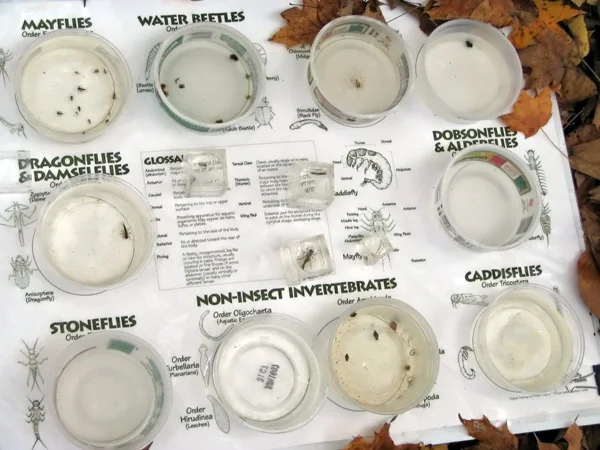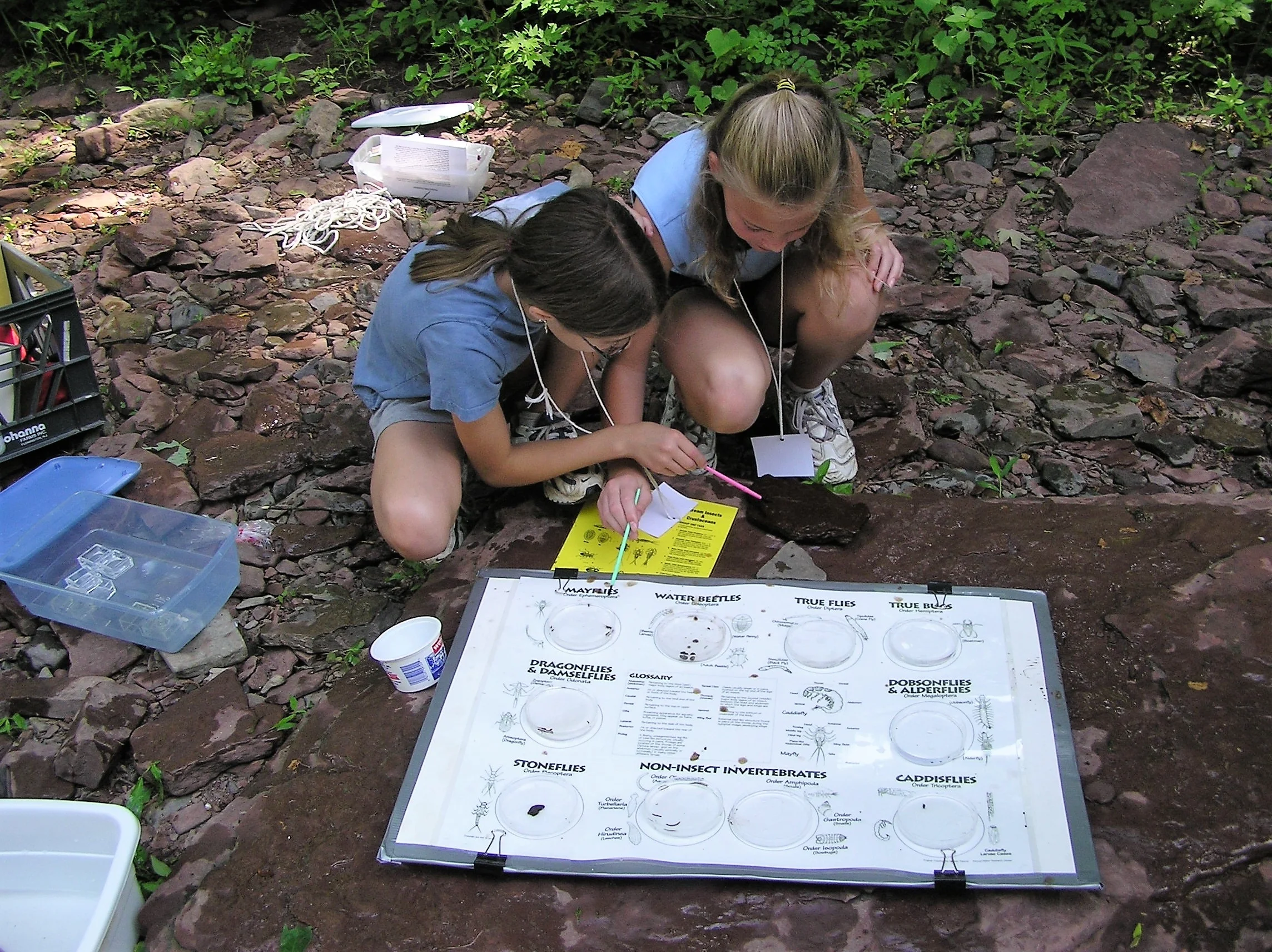Earth Day Special - For Pre-K and Kindergarten
It’s a large planet with lots of wonderful plants and animals all over it! Every living thing needs clean water, fresh air, food and shelter to survive. How can young learners help take care of such a large place? Join us as we examine the role of two very important tools, “knowledge” and “caring”.
We’ve designed engaging activities and created an action component to help your students make a difference! This unique and empowering hour long program features a very special craft at the end!
For pre-school, kindergarten, or T-1 classes of up to 24 students.
Fee:
* $7.50 per student at the Conservancy ($75 minimum fee per class)
* $8.50 per student at your site ($80 minimum fee per class) plus a $10 per class travel & transportation fee when held at your site
For more information or for reservations contact: PWC Education Department at education@perkiomenwatershed.org
What the teachers are saying:
”I was very impressed by the program and the literature chosen to relay the Earth Day message. The presentation was great learning fun for all!”
- Asst. Principal, Chesterbrook Elementary
PDE Academic Standards for Environment and Ecology covered by this lesson include:
3.1.PK.A1 - Recognize the difference between living and non-living things.
3.1.PK.A2 - Identify basic needs of plants (water and light) and animals (food, air, water).
4.1.PK.D - Identify basic needs of living things.
4.3.PK.A - Identify how the environment provides for the needs of people in their daily lives.
4.4.PK.B - Identify people’s basic needs.
4.5.PK.A - Identify what people need to survive.
4.5.PK.C - Identify ways people pollute the environment.
4.5.PK.D - Describe how everyday human activities generate waste.
4.5.PK.F - • Distinguish between scientific fact and opinion. • Ask questions about objects, organisms and events. • Understand that all scientific investigations involve asking and answering questions and comparing the answer with what is already known. • Plan and conduct a simple investigation and understand that different questions require different kinds of investigations. • Use simple equipment (tools and other technologies) to gather data and understand that this allows scientists to collect more information than relying only on their senses to gather information. • Use data/evidence to construct explanations and understand that scientists develop explanations based on their evidence and compare them with their current scientific knowledge. • Communicate procedures and explanations giving priority to evidence and understanding that scientists make their results public, describe their investigations so they can be reproduced and review and ask questions about the work of other scientists.
4.3.K.B - Recognize the importance of conserving natural resources.
4.5.K.A - Identify what people use in their everyday life.
4.5.K.C - Identify different types of pollution (land, water or air) and their sources.
4.5.K.D - Identify waste and practice ways to reduce, reuse and recycle.
4.5.K.F - • Distinguish between scientific fact and opinion. • Ask questions about objects, organisms and events. • Understand that all scientific investigations involve asking and answering questions and comparing the answer with what is already known. • Plan and conduct a simple investigation and understand that different questions require different kinds of investigations. • Use simple equipment (tools and other technologies) to gather data and understand that this allows scientists to collect more information than relying only on their senses to gather information. • Use data/evidence to construct explanations and understand that scientists develop explanations based on their evidence and compare them with their current scientific knowledge. • Communicate procedures and explanations giving priority to evidence and understanding that scientists make their results public, describe their investigations so they can be reproduced and review and ask questions about the work of other scientists.







